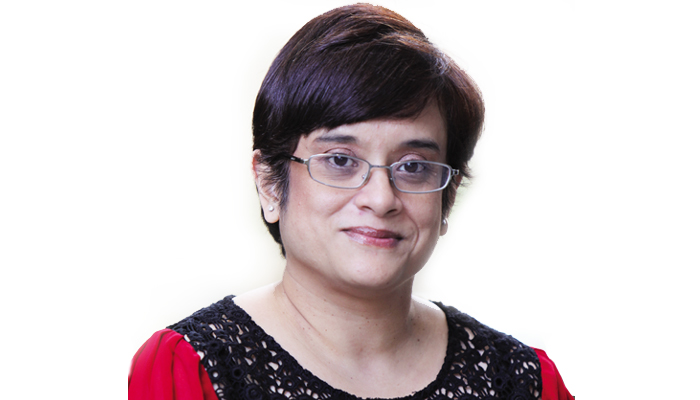

Debjani Ghosh Managing Director, Sales & Marketing Group – Intel South Asia
Tell us about the initiatives that Intel is taking under the National Digital Literacy Mission?
The main aim of the National Digital Literacy Mission is to improve the condition of digital literacy in India and help rural communities to take lead in the global digital economy and help them in maintaining the competitiveness and also shape a technologically empowered society. Under NDLM, Intel and its NGO partners have set up digital literacy training centres in the three villages which have received the National Optic Fibre Network. These villages are located in Rajasthan, North Tripura and Andhra Pradesh. Over the last year, the goal of having one e-literate person per household in these three villages has been fulfilled. Through its Intel Learn Easy Steps curriculum on digital literacy, we have already trained over 1.7 million citizens in India. Intel has recently launched the Intel Learn Easy Steps Android App to scale digital literacy training.
Tell us about your Ultrabook business in India? What is the USP of this product?
Today the computer is evolving. There is hyperinnovation and the industry is in a period of transition. We are having new innovations that are pointing towards a rather exciting computing future. New shapes like tablets, 2-in-1s and new operating systems are blurring the traditional landscape of computing. Intel’s Ultrabook is a sleek, mobile and high performance computing system. It is meant to fulfil the computing needs of today’s professionals who want a light device with heavy computing power. With touch screen technology, the ultrabooks are going to redefine the way in which we look at computing.
How has been the overall growth of Intel in India? What role has technology played in the success of your projects?
Intel’s growth throughout the world has been mirrored in India as well. In India, our focus has specifically been on the untapped segment of the market. A large segment of the Indian population is unaware of the benefits of a computing device and the positive change it can bring about in our life. Therefore the focus in India needs to be on what we do with technology and the impact it has on individuals. Driving real and meaningful usage starts at the grassroots level, be it to build job skills or find employment opportunities or find new markets for small traders or provide preventive healthcare to the masses. Technology is meaningful and useful only when it helps individuals be more productive and makes lives easier. We have a long way to go to enable that in India. What we need is a holistic approach to technology that addresses last mile access, localized content, digital literacy and of course choice of devices to meet different consumer needs. If we get it right, the sum total of the strategy will have more value for the consumers and industry than the singular focus on hardware or devices that we see in the country.

What are your plans for the next couple of quarters?
With mobility in computing on the rise, Intel has been working on the same, partnering up with OEMs to design exciting new tablets and Smartphones. Intel has already launched their two big reveals for this year – 4th Gen Core Processors and Bay Trail. You can expect a range of exciting new devices based on these platforms to be out towards the last few months of the year. Apart from this Intel continues on its mission to spread domestic digital adoption and digital literacy throughout the country by means of its My Discoveries campaign and its initiatives under NDLM.

Be a part of Elets Collaborative Initiatives. Join Us for Upcoming Events and explore business opportunities. Like us on Facebook , connect with us on LinkedIn and follow us on Twitter, Instagram.











